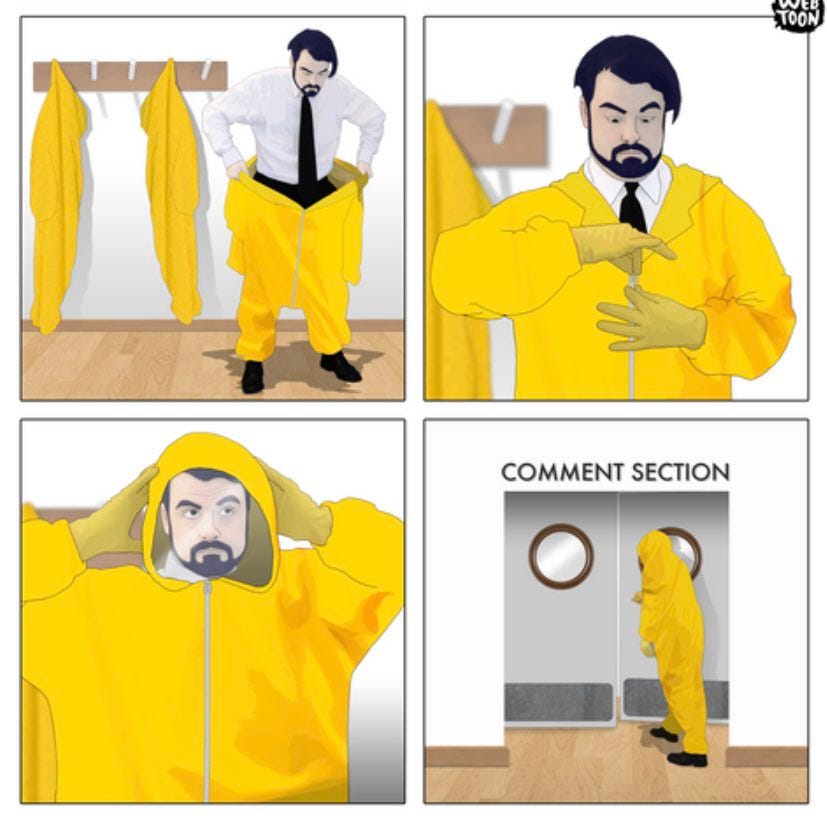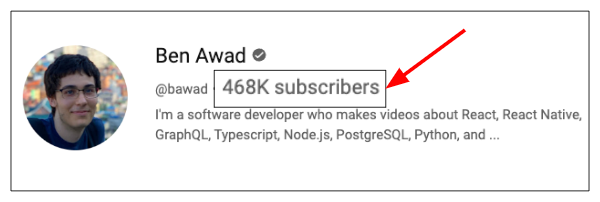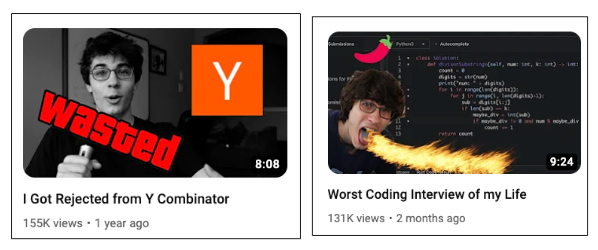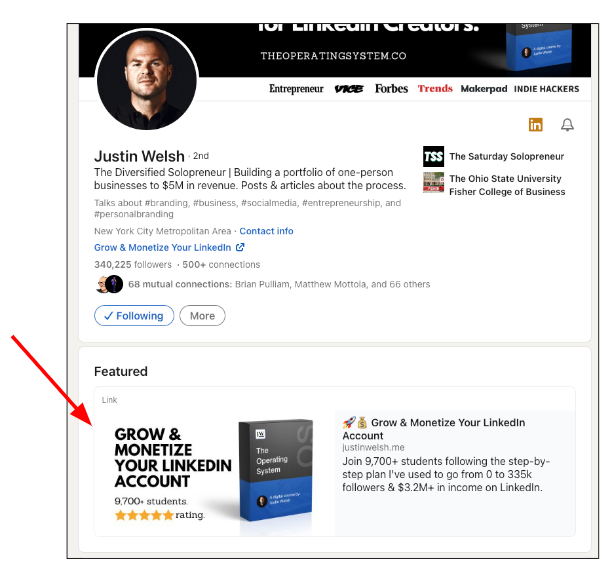
Dear Entrepreneur — If You Don’t Promote Yourself, Nobody Will Your visibility as a founder dictates your business success.
 As an entrepreneur — YOU are the product you have to sell.
As an entrepreneur — YOU are the product you have to sell.
If you want to build something meaningful, you will have to do uncomfortable things.
And the most uncomfortable thing you have to get used to as an entrepreneur is self-promotion.
Yet a lot of founders shy away from this because they’d rather hide behind a business brand.
But the reality is that as an entrepreneur, you’re not selling a product. YOU are the product.
So if you want to make sales, you must sell yourself first. And if you promote yourself the right way, it doesn’t have to feel sale-sy at all.
Trying to Hide Behind a Business Brand Won’t WorkMany founders tell me that they don’t want to put themselves out there because they prefer to be the “person behind the scenes.”
But hiding behind a business brand will never work because people don’t want to follow companies.
What people are attracted to is a story, a personality, and a person who really cares. People want to follow other people. In short:
People want to follow YOU!
When people follow you, they actually see themselves in you. Your journey inspires them as they live vicariously through your success.
They can’t get that by following a company.
It’s no wonder that most founders have more followers on social media than the companies they own, including Elon Musk himself.
 Who would you rather follow: Elon Musk or Tesla?Criticism is a Normal Part of Entrepreneurship
Who would you rather follow: Elon Musk or Tesla?Criticism is a Normal Part of Entrepreneurship
Second, I think what stops founders the most from promoting themselves is a fear of rejection.
If a founder hides behind their product, they can say that the product failed. But when you get rejected as a person, it feels much more personal.
I empathize and I can’t deny that it’s tough. I know because I’ve faced painful criticism since I started my entrepreneurship journey as well.
 How I prepare myself to face criticism in the comment section
How I prepare myself to face criticism in the comment section
For example, after publishing the article about why I left my job at Netflix, the top comments were incredibly negative.

To make it even worse, when my father read this article, he said he agreed with the comments and thought I was “whining.”
So I get it. But I still push through because to me, entrepreneurship is like being a chef.
If you’re the best chef in the world, someone will still not like the food you cook. So you can’t let the 10% who don’t like what you have to offer stop you from showing your brilliance to the other 90% of the world.
And second, I focus on the intention. If I had a genuine intention to help others, then I feel there is nothing to be ashamed of.
My mentality: if I help just one person with my writing, then I did my job as a writer.
So despite all the negativity, I focus on the people who appreciate and benefit from my writing. So when I get messages like the ones below, I feel much more at ease, despite the harsh criticism I often face.
 These comments make it all worth it.So How Should I Promote Myself Then?
These comments make it all worth it.So How Should I Promote Myself Then?
Self-promotion doesn’t have to feel sale-sy. It only feels sale-sy if you’re doing it in the wrong places and not adding value to the conversation.
Here’s how to do it the right way.
1. Apply the “Thank You” TestI use a test called the “Thank You” test on social media to decide whether something is too self-promotional or not.
For every post you make, ask yourself:
“Could someone possibly thank me for making this post?”
If yes, then post. If not, add more insight and learnings for the reader until someone could “thank you” for it.
For example in this LinkedIn post, notice how it starts off as a celebration post where I talk about a recent achievement.
 This post fails the “Thank You” test
This post fails the “Thank You” test
By itself, this won’t pass the “Thank You” test because no one will ever thank me for talking about myself.
But notice how I changed this post by adding advice below it so the reader gets something out of this.
 Most of this post is useful for the reader now.
Most of this post is useful for the reader now.
With this addition, the post doesn’t come off as purely self-promotional. The reader can learn from what I did to try and replicate the success.
This post indeed passed the “Thank You” test as I actually got a “Thank You” in the comment section below.
 2. Share the Failures
2. Share the Failures
Another way to put yourself out there without coming off as too self-promotional is to share your mistakes and failures as well.
For example, Ben Awad is a developer and YouTube star where his engineering projects serve as both content and monetization rolled into one.

He talked about his content strategy in an interview once, where he said:
“If something good happens in the project I’m making — fantastic. Something good happened, plus I can make a YouTube video about it,” he said.
“If something bad happens with the project I’m working on, that sucks, but at least I can make a YouTube video on it. And people absolutely love it when something bad happens.”
 Examples of videos documenting his failures.
Examples of videos documenting his failures.
In fact, by documenting his failures, Ben comes off as more relatable and authentic as well.
3. Don’t Sell in the Content DirectlyThe last piece of advice I’ve noticed about self-promotion is to not do it in your content directly, but only in places where the reader has to actively seek it out.
This includes two places:
- Your newsletter
- Your profile
I recommend doing this in newsletters because the reader has to actively give you their email address, which is a clear indication of interest.
You can see how solopreneur Justin Welsh does it in his newsletter below.
 Note how Justin Welsh only advertises his courses at the bottom of his newsletter.
Note how Justin Welsh only advertises his courses at the bottom of his newsletter.
Your profile also works because if they clicked in, that means they were interested in learning more about you, so it’s appropriate to show them your products and services there.
 Justin Welsh links to his course only in his profile
Justin Welsh links to his course only in his profile
And if you look at Justin Welsh’s content strategy, he never talks about his courses, consulting, or sponsorships in his normal posts.
In fact most of his content is simple posts that pass the “thank you” test like the one below.
 Notice how he doesn’t mention his products in his Tweets.
Notice how he doesn’t mention his products in his Tweets.
I aggregated all all the places where you should make sales in your social media profiles in the picture below.
 These creators use content to drive traffic to their profile to make sales. They don’t sell directly in their content.Final Thoughts
These creators use content to drive traffic to their profile to make sales. They don’t sell directly in their content.Final Thoughts
If you don’t promote yourself, nobody else will.
So if you haven’t promoted yourself enough before, 2023 is the time to do it.
I intend to follow my own advice and take my publishing schedule to another level by posting:
- 5x/week on LinkedIn and Twitter
- 1x/week on Medium and on my Substack newsletter
Join me on my writing journey, and let’s get our names out there. Our careers depend on it!
? Want to Read My Articles For Free?Join 2700+ subscribers reading my newsletter without the Medium paywall.

Connect on LinkedIn here.
Find the rest of my socials here.
Dear Entrepreneur — If You Don’t Promote Yourself, Nobody Will was originally published in Entrepreneur's Handbook on Medium, where people are continuing the conversation by highlighting and responding to this story.
* This article was originally published here
Comments
Post a Comment